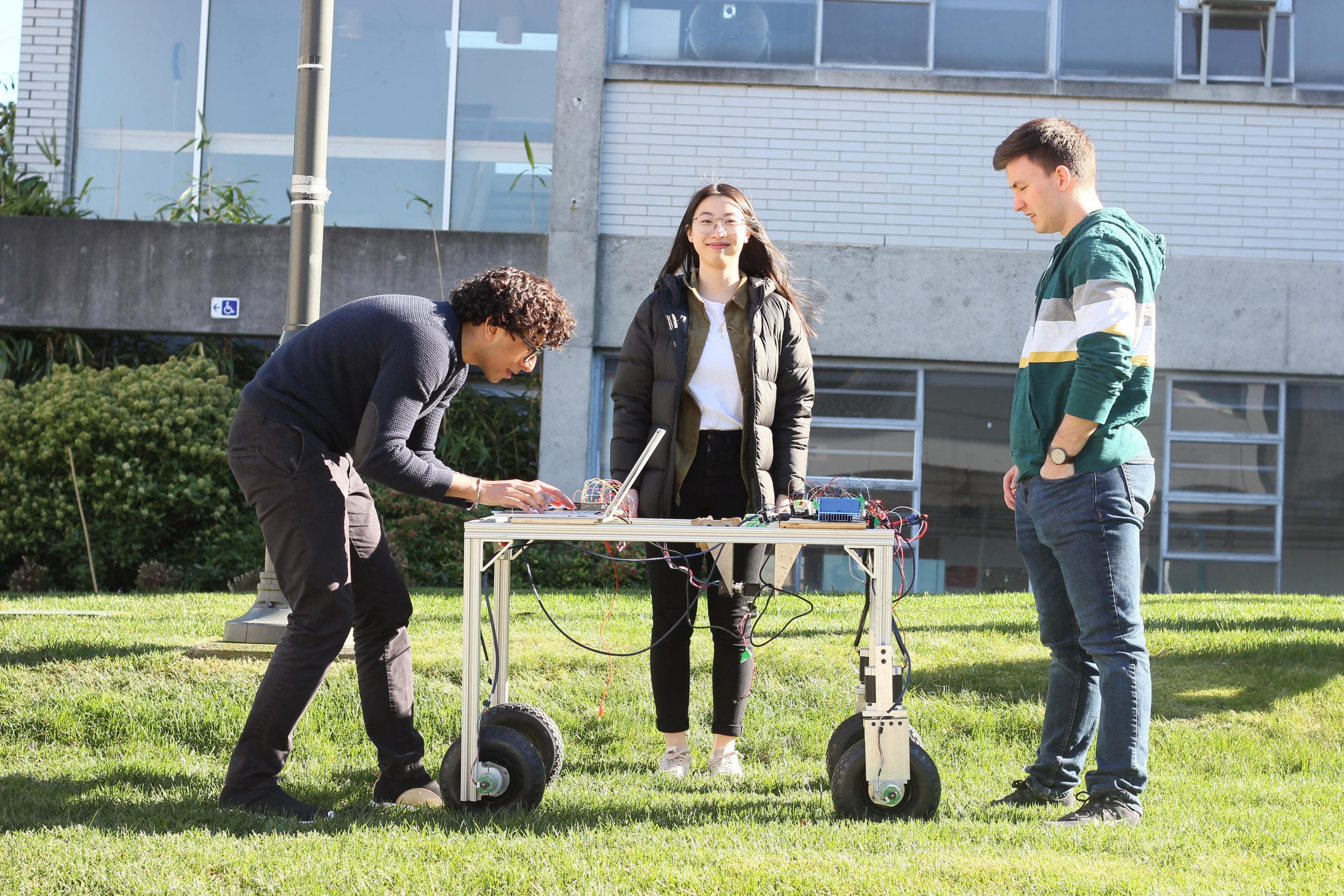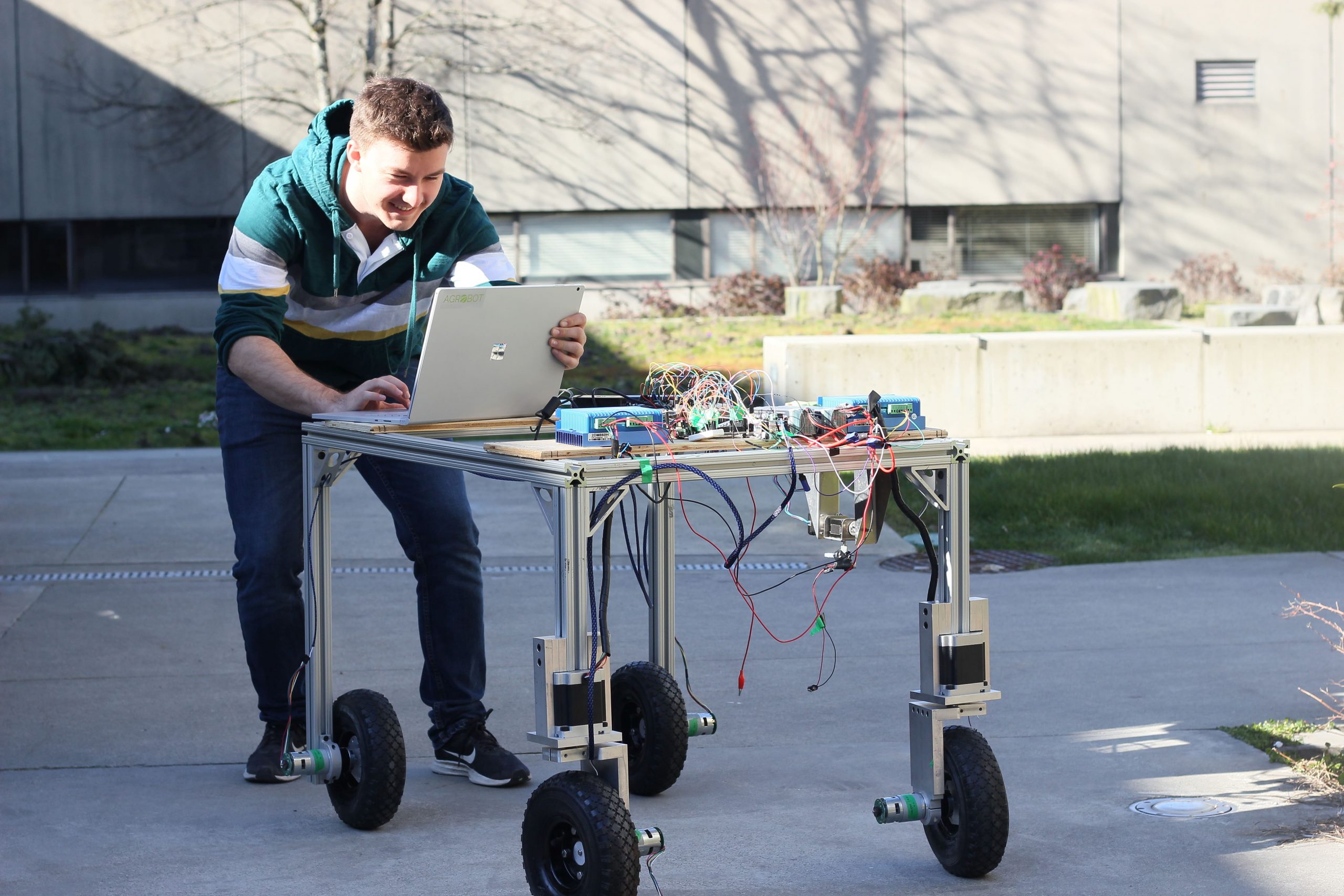Short Description of Project
AgroBot aims to build a fully autonomous robot that can use information from its surrounding to exterminate weeds and fertilize crops. By using autonomous robots to traverse crop fields, identify weeds using image recognition and precision extermination tools, we can reduce pesticide use, and its exposure to humans and the environment.
Amount of funding awarded
11400
Budget Report
View budget report.

How the program has supported you
AgroBot hoped to build a robot and participate in the Purdue Agrowbot competition. The funding from PAF helped the team purchase a portion of the parts that supported the student’s endeavours to build all mechanical, electrical, and software systems on board the robot. The mechanical subteams were able to build a targeted weed eliminating method with a row of sprayers, purchase a large battery to power all the electronics on the robot, and acrylic plastics to cover for the robot for protection from the rainwater. The software subteams were able to purchase a Nvidia Jetson board to process data and run algorithms, and various cameras for sensing the surrounding environment. With the use of the PAF funding, AgroBot was able to provide an opportunity for students to prototype and build a robot to meet the design goals of the competition, including autonomous navigation, targeted pesticide application, and weed detection.

Outcomes
Outcome of the project include engineering a prototype of the autonomous agricultural robot which is able to be driven around at UBC Farms. The team also developed a mechanical mechanism that support the targeted application of pesticides in the field. Students from various engineering disciplines were able to participate in the design process through the team’s focus on software, mechanical, and electrical design. Directly, students were able to gain hands-on experience in an engineering project outside the classroom. Short-term benefits include student experience in engineering design and experience in real-life problem solving. Long term benefits include helping the students gain valuable interpersonal skills and form friendships through collaborating with other team members.